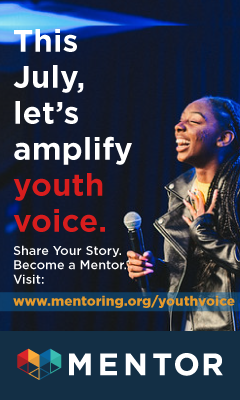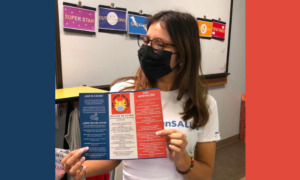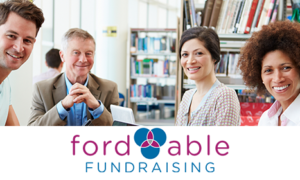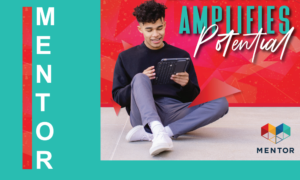MENTOR: The National Mentoring Partnership
 One in three young people will grow up without a mentor outside of their family. With someone to help navigate personal, professional, and academic challenges, they are more likely to enroll in college and hold leadership positions in their community. This is something Americans can agree on – nearly 9 in 10 feel that more mentoring is needed in our country.
One in three young people will grow up without a mentor outside of their family. With someone to help navigate personal, professional, and academic challenges, they are more likely to enroll in college and hold leadership positions in their community. This is something Americans can agree on – nearly 9 in 10 feel that more mentoring is needed in our country.
As part of our ongoing mission to fuel the quality and quantity of mentoring relationships for America’s young people, MENTOR has published over a dozen resources for mentoring practitioners. These are webinars, toolkits, and research guides ranging from the LGBTQ Supplement to the Elements of Effective Practice for Mentoring™ to a critical orientation for programs working with native youth.
In recent and future publications, MENTOR is challenging ourselves to center youth voice – because while we may be experts in the mentoring field, our youth are the only experts on what it’s like to be young right now, and we strive to let their lived experience guide these resources. Here are some highlights:
Masculinity Guide
MENTOR released “Conversations About Masculinity: How Mentors Can Support Young Men of Color” in March, and youth voice is prevalent throughout.
MENTOR held focus groups with young men ages 14-18 from The Fellowship Initiative (TFI fellows) to explore how masculinity impacted them. Not only did these focus groups guide the publication as a whole, but quotes from the interviews appear prominently including the cover, which reads: “We Need to Prove How Strong We Are All of the Time.” By combining research, prompts for mentors, and direct quotes from young people, The Masculinity Guide illustrates the kind of conversations it aims to inspire.
Social Emotional Learning Guide
A forthcoming Social Emotional Learning (SEL) Guide is designed to help community and school-based mentoring practitioners, as well as researchers, funders, and policy makers, embrace more effective SEL strategies that center relationships.
To make the case that relationships are core to all SEL and skill development, we completed a thorough research review and four case studies. For each program we profiled, we conducted interviews with youth participants to determine what worked about that particular program model.
We also relied on two focus groups to guide this project. The first, made up of mentoring practitioners, was meant to identify their professional values and what they needed from an SEL guide. Their response? Youth voice, something the current SEL landscape was lacking.
By consulting middle schoolers, MENTOR had the opportunity to test their theories and make sure that it rang true with the youth it sought to benefit. The focus groups allowed our team to design a more effective tool that explores important themes and fills a gap in the existing SEL curriculum.
Peer to Peer Guide on College Readiness and Persistence
We are currently working on a youth voice follow-up to Finding the Greatness Within, a research-driven guide on supporting boys and young men of color through their college and career transitions, produced in partnership with JP Morgan Chase.
The upcoming guide, a Peer to Peer Guide on College Readiness and Persistence, will focus on conversations with and experiences of high school and college-age young people.
The goal? Find out from TFI Fellows what kind of support they wish they had and what advice they would give to younger folks. Through this process, we hope to broaden the scope and effectiveness of our existing resources, and empower young people to advocate for themselves and for each other.
By seeking out youth voice and incorporating into everything we do, MENTOR helps mentoring practitioners – those who are creating matches, recruiting mentors, and training folks on how to interact with young people – provide the best level of youth services possible.
But of course, none of this can happen without mentors. 69% of Americans are already mentoring or willing to consider it, and the primary reason folks haven’t gotten involved is a lack of information on how to sign up. That’s why we created the Mentoring Connector – the only national search engine of high-quality mentoring programs – which allows volunteers to find and connect with mentoring programs near you, as well as search for opportunities to serve a specific youth population. Visit www.mentoring.org/youthvoice to get involved.































